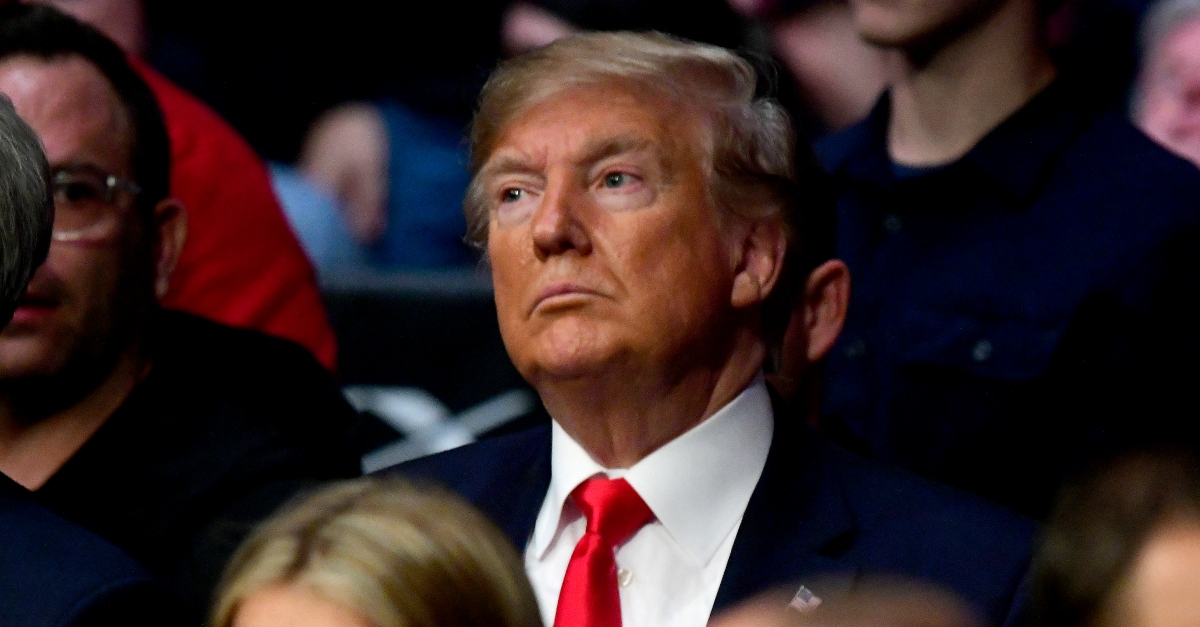
A national nonprofit dedicated to supporting whistleblowers is condemning the latest efforts by the White House to name and shame the intelligence community whistleblower whose actions indirectly led to the impeachment of President Donald Trump.
Over the post-Christmas Day weekend, Trump and one of his official re-election campaign accounts sent and retweeted various tweets which purported to identify the alleged whistleblower who authored a complaint that eventually led the Democrat-controlled U.S. House of Representatives to investigate the White House’s withholding of military aid to the Ukraine.
The National Whistleblower Center (NWC) noted that those “tweets represented the first instance that [Trump] posted anything on his Twitter timeline that named the alleged whistleblower.”
A press release added that the group “unequivocally condemns these latest attempts by the President and his allies to expose the identity of the intelligence community whistleblower.”
As Law&Crime previously reported, Trump’s tweets were roundly criticized by legal commentators as an unprecedented assault on the nation’s increasingly infirm norms and institutions–as well as a more or less blatant violation of the federal law which governs the behavior of whistleblowers and protects them against retaliation.
“Trump’s participation in publicizing the name of the whistleblower is a direct attack on our constitutional republic [and] national security,” tweeted former federal prosecutor Christopher C. Alberto. “He also violated the [whistleblower] protection act [and] his oath of office. [Trump’s] central goal is to intimidate others from speaking up.”
That law, codified at 5 U.S.C. § 2302 (b)(8)-(9), prohibits the government from taking any kind of “personnel action” against an employee who makes “any disclosure of information” which the employee “reasonably believes” to show “any violation of any law, rule, or regulation.” The statute also prohibits such retaliation against “the exercise of any appeal, complaint, or grievance right granted by any law, rule, or regulation” including “cooperating with or disclosing information to the Inspector General.”
“Only in the era of Donald Trump could a lawful whistleblower be so disgustingly vilified for political purposes,” added national security attorney Bradley P. Moss, who is a partner at the law firm operated by one of the lead attorneys for the intelligence community whistleblower. Moss himself, however, is not working on that case (he’s still received death threats).
The pro-whistleblower organization largely echoed those concerns in a statement obtained by Law&Crime on Monday.
NWC Executive Director John Kostyack said:
These threats to the personal safety and livelihoods of whistleblowers emanating from the President and his allies are unprecedented and pose a serious threat to our democracy. Our democracy depends on a broad commitment to the rule of law, especially from the individual who sits at the top of our law enforcement apparatus. The whistleblower statute passed by Congress in 2014 states that “the President shall provide for the enforcement of this section,” thus the President has failed to carry out his mandatory duty to enforce the law against reprisals and keep the whistleblower’s identity confidential.
The original Whistleblower Protection Act was passed in 1989. In 2012 and 2014, Congress increased certain whistleblower protections.
NWC’s Board Chair Stephen M. Kohn added that President Trump “needs to take a hard look at what he has posted on Twitter and the statements he has made in public regarding the whistleblower.”
Trump was previously accused of violating federal law for signaling to a press gaggle that he intended to discover the whistleblower’s identity–suggesting that he might confront them about the contents of their original complaint detailing an alleged quid pro quo between the White House and Ukrainian President Volodymyr Zelensky.
“We’re trying to find out about a whistleblower,” Trump said in late September. “We have a whistleblower that reports things that were incorrect. As you know and you probably now have figured it out, the statement I made to the president of Ukraine–a good man, nice man, new–was perfect. It was perfect. But the whistleblower reported a totally different statement, like the statement was not even made.”
Critics interpreted those comments as a transparent attempt by the 45th president to retaliate against the whistleblower.
“He should review the comments his attacks have spawned, the mounting evidence that the whistleblower has suffered from actual threats triggered by the president’s comments, and the formal ‘cease and desist’ letter written by the whistleblower’s attorney,” Kohn continued. “Congress explicitly amended obstruction of justice laws to protect whistleblowers in 2002. The Trump-Ukraine whistleblower falls within this statute. She or he reported information to a federal law enforcement agency that was believed to be true and related to the ‘possible commission’ of ‘any’ federal offense. Revealing the identity of the whistleblower would unquestionably violate this law.”
The NWC was founded in 1988 and operates as a 501(c)(3) organization which provides legal aid and public advocacy for whistleblowers as well as education for the general public and private organizations that focuses on “how they can effectively utilize reward-based whistleblower laws to fight corruption.”
[image via Steven Ryan_Getty Images]
Have a tip we should know? [email protected]